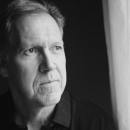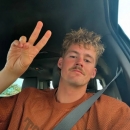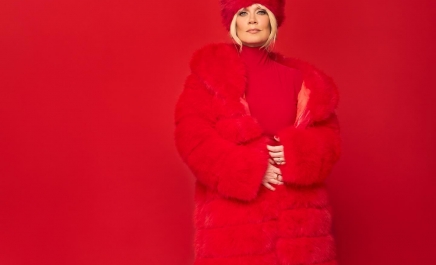Music is something we all have in common. It transcends religion, race, language, and even time. The new book "Stories of Music" explores an array of experiences with music and how it has impacted people's lives, from its role in healing, community, and family traditions to musicianship, travel, and much more. With works by more than 40 authors and artists from 11 countries, this anthology will take you on a journey around the world through poetry, nonfiction, photography, original music, and videos.
"Stories of Music: Volume 1" is the winner of two 2016 Next Generation Indie Book Awards (Third Place Grand Prize for nonfiction and an award for the anthology category) and winner of the 2016 Colorado Book Award for anthology.
Q: Holly, I was so moved reading your book. You were once a marketing communications professional, so what promoted you to be involved in "Stories of Music"?
The idea for Stories of Music had been on my mind for a few years--considering my own stories and those of people I knew, I was curious what experiences other people might have had with music, and how it has impacted their lives. So, when I left my corporate job in the fall of 2014, I took the opportunity to focus on bringing the idea to life.
Q: Music means a lot to you. In the book, you speak about how music helped you over the death of your brother Brandon. Tell us a little about Brandon's passing and how music helped you heal.
Brandon passed away very unexpectedly in a car accident in January of 2008, just a couple days before his 35th birthday. My family was devastated, mostly because it was unfathomable that he was gone, but there was also the question of whether or not the accident could have been avoided. Brandon was a great guy, but he also struggled with depression. There's always been that lingering question of whether or not it was truly an accident, and if any of us in my family could have done more to be there for him.
At some point, I had to put the questioning to rest, and I went back to music to try and reconnect with him--Brandon and I always enjoyed playing guitar and singing together when we were kids, and music was always the leading topic of our discussions. I lived in New York City at the time of his passing--my family back in Kansas City--so rather than spending time with family to begin the healing process, I spent my time writing music, always with a picture of Brandon nearby. I would feel him with me, inspiring my words and melodies, encouraging me. Whether or not he was really there, music--playing guitar and singing to him--gave me a vehicle to mourn the awful thing that had happened. Still, more than eight years later, Brandon's photo sits on my office desk, and when I sing, I imagine him right here with me.
Q: What kind of music did you listen that brought about your own healing?
It's funny the range of music that can help you heal. For me, it's been a combination of songs that are as sad as I feel, and songs that bring back memories and just make me smile. When Brandon first passed, I was listening to Iron & Wine's album, The Shepherd's Dog and the song, "Boy with a Coin" really resonated with me. I also listened to Feist's song "Intuition" quite a bit. It's more of a love song, but I found some of the lyrics moved me to tears--when she says, "It's impossible to tell . . . how he might have changed it all, and how you might have changed it all for him." It strikes a chord with me even today, thinking about what he could have become if he were given more time. Then, there are fun songs we used to sing together when we were kids, like The Doobie Brothers' "Black Water." I hear this song now and I just laugh at how obnoxious we were when it would come on the radio.
Q: There are various genres and styles of music. Is there a particular form of music that is more healing than others?
I don't think any one genre is more healing than others. I think each individual determines what is healing for them, and this is why there is such a variety of stories in the book. One story is centered on how rock and blues music helped to heal the war-torn country of Bosnia; another story introduces readers to an a cappella song that has helped people heal after 9/11; and there is even a story about a woman who brings Mozart's music into a prison for a music appreciation class, and the inmates (her students) find comfort in his music. The book covers several other genres, as well, and it's really inspiring to hear how these various kinds of music have impacted people's lives.
Q: For the book, you got authors from various countries to contribute their stories of how music helped them. How did you advertise for entries and how many entries did you receive?
There are some great websites and resources out there that aggregate opportunities for authors and artists to be a part of various creative projects. I found a few that have large followings (Authors Publish, Freedom With Writing, and Photo Contest Insider), and I simply reached out to them to see if they would share my project with their audiences through their newsletters and websites. I had some really good luck, and a couple of them also shared the project with their social media audiences, and then a few bloggers picked it up as well. All-in-all, I think my call for submissions reached around 500,000 authors and artists around the world. As a result, I received more than 1,000 submissions for Stories of Music: Volume 1.
Q: What did you look out for in an entry to include in your book?
I tried to bring together stories that everyone could relate to, plus I wanted the stories to inspire people--the ways in which music can heal, create community, and help us remember special moments in our lives, and how music can teach us about the world around us--today's world and that of generations past. Music is so universal--it was important to me that the stories reflect this.
Q: This is not just a book to read, but you can also hear. Can you explain the audio part of the book with its web-based poetry and music?
Yes, it's certainly a unique reading experience. Some of the poets, in addition to sharing their poetry, shared audio recordings of them reading their works. These recordings provide a sense of the people behind the poems--the emotion in their voices and the ways in which they articulate their chosen word
s--and it becomes a more intimate reading experience that, I think, brings the poems to life. Also, a few of the stories were centered on how musicians came to write some of their music, and particularly the impact of their music, so I was also able to include some of these songs. Readers access the audio works (and a couple of videos as well) through a free companion web edition at sombk.co. The book directs them to the specific pages on the web edition where the audio/video is available, but readers need the print edition to enjoy the full collection of stories.
Q: I believe Vol. 1 was released last year, with Vol. 2 coming in the fall. How many volumes do you plan for this series?
That's correct. Volume 2 will be released in Fall 2016, and I hope to release a third volume in Fall 2017. If I see enough interest in these collections, I would happily continue creating additional volumes.


















